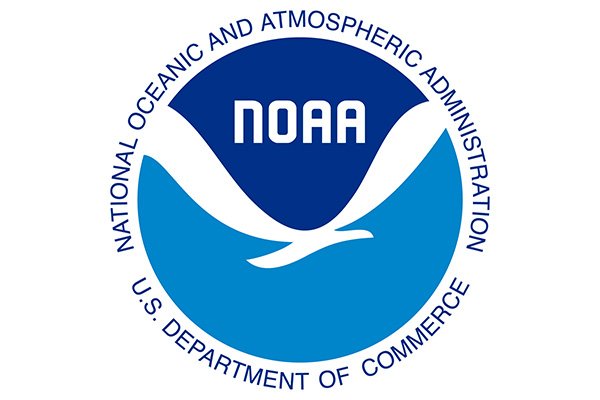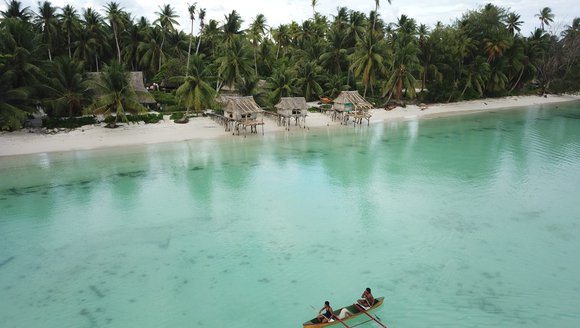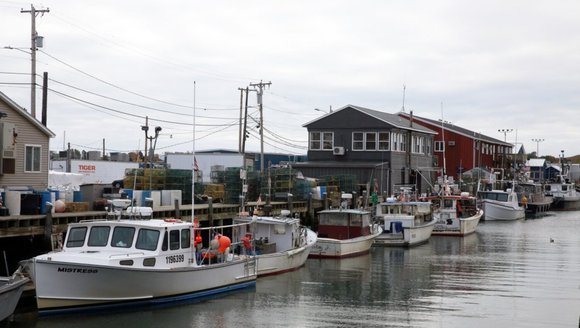Climate Adaptation Strategies for Northeast U.S. Fishing Communities
Building adaptive capacity for our fishing communities
Warming ocean waters are driving changes in species along the Northeast Shelf, which impacts fisheries and alters the species available to fishing communities. The severity of social and economic impacts as a result of these ecological changes will depend on how effectively individuals and communities can adapt. Instead of prescribing our own adaptation strategies, we will work with communities to understand their needs and interests in order to develop more community-specific information about expected future species changes, economic impacts, and adaptation strategies.
Project Goals:
- Provide community-specific information on vulnerabilities and opportunities associated with climate-driven shifts in fished species.
- Evaluate adaptation strategies, implementation pathways, and associated economic benefits.
- Build capacity of fishing communities to prepare for and adapt to climate-related species shifts through effective management and planning.
Marine waters of the Northeast Shelf have warmed faster than 99% of the world’s oceans over the past 30 years. This rapid warming has already affected the productivity and distribution of species such as Atlantic cod, American lobster, and Northern shrimp. These ecological changes also impact humans, as the region's fisheries and fishing communities work to adapt. Ultimately, the intensity of social, economic, and cultural impacts depends on both how vulnerable target species are to changes in ocean temperatures, and whether individuals and communities can effectivity adapt. Forward-looking information on projected species changes, economic impacts, and adaptation benefits is foundational to support operational, investment, management, and planning decisions the fishing industry and fishing communities face.
We are leading several interdisciplinary projects to provide community-scale information that can be used to guide adaptation and planning for future ecosystem and fishery changes. Our research products include projections of future species changes under several climate scenarios, estimates of economic impacts to local fisheries, and evaluations of economic benefits associated with specific adaptation strategies. Stakeholder interviews and workshops enable us to identify and evaluate relevant strategies and understand facilitators and barriers to their implementation. Integrated together, this information can be used to identify viable pathways to support resilient fisheries and fishing communities. Working with community leaders and local organizations, our ultimate goal is for these products to help identify future opportunities for regional fisheries that will sustain harvested resources and vibrant communities in the face of climate change.
Internal Team
External Collaborators
-
![A portrait of a woman smiling.]()
Lisa Colburn, Ph.D.
External Collaborator
NOAA Northeast Fisheries Science Center
-

Eric Thunberg, Ph.D.
NOAA Northeast Fisheries Science Center
-

Troy Hartley, Ph.D.
Virginia Sea Grant, Virginia Institute of Marine Science
Project Sponsor and Partner
This project is generously supported by funding from the National Oceanic and Atmospheric Administration's Climate Program Office under awards NA15OAR4310120 and NA19OAR4310384.
Read More
-
![Supporting climate-resilient fisheries during the UN Decade of Ocean Science]()
Supporting climate-resilient fisheries during the UN Decade of Ocean Science
A new “Food for Thought” study, which we contributed to and which has been published in ICES Journal of Marine Science, outlines FishSCORE’s strategies and …
Press Clips
-
![2021 Research Progress Update]()
2021 Research Progress Update
Our research team has been hard at work over the last year. To keep you updated on their progress, we've developed a report showcasing some …
Announcements
-
![Portland’s historic Union Wharf being sold, preserved for maritime use]()
Portland’s historic Union Wharf being sold, preserved for maritime use
Fishermen and city officials praise the agreement between the Gulf of Maine Research Institute and the Poole family, saying the organization is securing the future …
Press Clips
-
![GMRI Scientist Appointed To National Leadership Role]()
GMRI Scientist Appointed To National Leadership Role
Dr. Kathy Mills will serve as a Chapter Lead for the Fifth National Climate Assessment — a comprehensive, congressionally mandated report that is collaboratively developed …
Tidings




